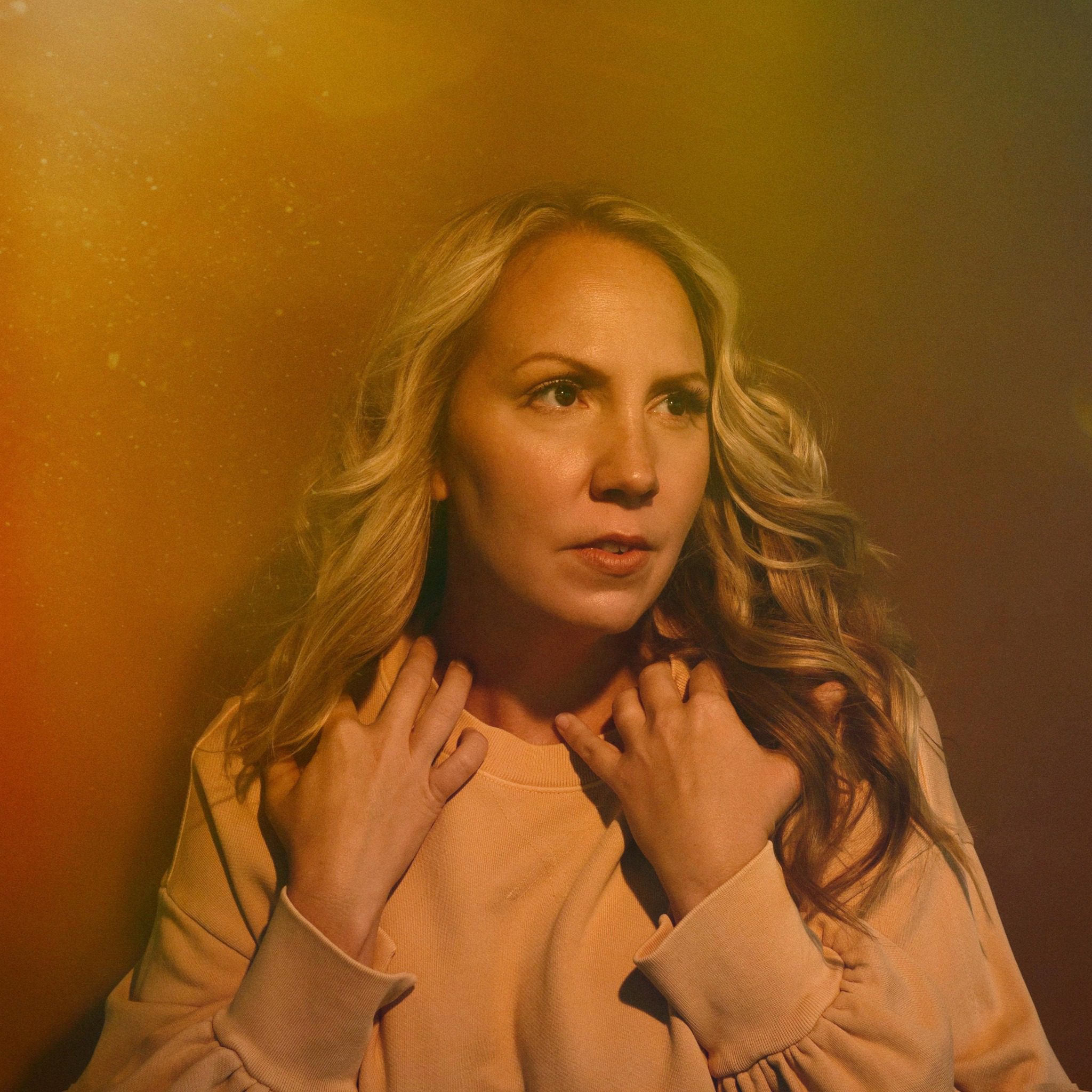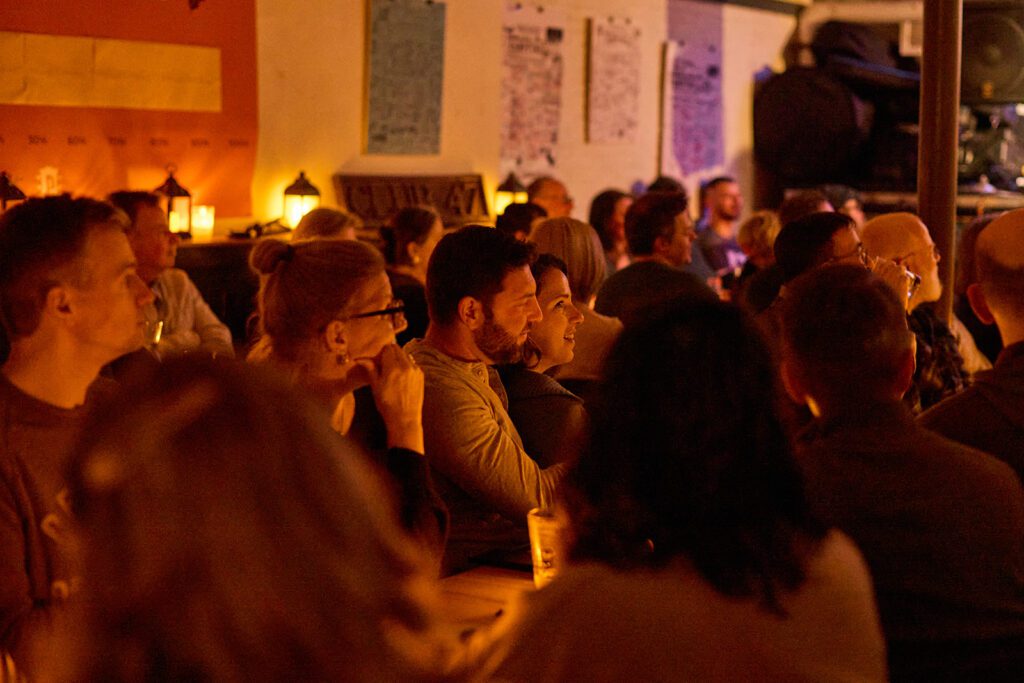Mary Bragg
“Writing is the most vulnerable state that I’m ever in,” says Mary Bragg. “But there can be a real beauty in that vulnerability when you know you’ve written the strongest thing that you can, when you’ve paired a killer melody with a meaningful lyric that says exactly what you’ve always wanted to say.”
With her stunning new album, ‘Violets as Camouflage,’ Bragg examines that vulnerability in all its delicate splendor, holding it up like a diamond to the light as she carefully studies each sparkling facet. Self-produced and self-engineered at Bragg’s home studio in Nashville, TN, the fourteen-song collection is both beautiful and blunt, the work of an artist only just beginning to embrace the full range of her talents. She writes with a keen eye for detail and an extraordinary sense of empathy, populating the album with a cast of characters grappling with pain and loneliness and longing and desire, questioning when to dig in and when to give up as they struggle to cope with hardship and loss. The arrangements here are rich and rootsy, pulling from country, folk, and blues to weave a timelessly organic blend around Bragg’s breathy, evocative voice as she sings about the kind of raw emotion that might have seemed impossible to address even just a few years ago.
“I grew up in the South, where it’s not super common to come right out and say what you feel or to talk openly about your intimate emotional experiences,” says the Georgia native. “The further along I get on my quest as an artist, though, the more natural it starts to feel. Writing this album was part of my skin shedding.”
For Bragg, the process of fully coming into her own actually began with her last record, 2017’s critically acclaimed ‘Lucky Strike.’ Hailed as a “sublime distilling of Southern grit” and one of the year’s best by NPR, the album dipped its toes into a kind of radical honesty that Bragg had only previously hinted at, and it connected with audiences in profound and deeply personal ways. The record prompted Vice Noisey to dub her an “Americana Queen,” while Music City Roots called the songs “infectious, smart, and resonant,” and World Cafe praised her “refined, sumptuously, melancholy take on Southern storytelling.” The title track earned Bragg first place in the prestigious Chris Austin Songwriting Contest at MerleFest, and the record’s second track, “Comet,” racked up over three million streams on Spotify.
“‘Lucky Strike’ was the first time I started to really understand the importance of directly addressing really personal issues and hardship through song,” explains Bragg. “As I toured the record and heard from fans saying how much the music meant to them and how much they really needed to hear what those songs had to say, it just made me want to keep chasing those emotions down even more. There’s always some painful element of life that could be made better with a song.”
The success of ‘Lucky Strike’ emboldened Bragg to trust her gut in a whole new way on ‘Violets as Camouflage.’ She teamed up with a slew of her favorite songwriters—including Grammy-nominees Steve Seskin and Bill DeMain, as well as younger contemporaries like Caroline Spence and Robby Hecht—to co-write roughly 75 new songs that reached deeper than ever before. Confident in her vision, Bragg began recording the songs by herself at home, often working long hours late at night when silence finally descended on her residential neighborhood.
“I did a lot of tracking after midnight once everybody fell asleep,” she explains. “I don’t normally like to record so late, but I discovered that there was actually this quietude and calm about the middle of the night that was really conducive to capturing these songs.”
The record opens with lead single “I Thought You Were Somebody Else,” a languid, seductive tune that feels both classic and modern at once. “Were the violets, long letters / just camouflage?” asks Bragg as she examines the ways we disguise ourselves and deceive each other in life and in love. It’s an ideal entry point for a record all about the stories in our heads, the little voices that delude us into hearing what we want to hear or weigh us down with self-doubt and insecurity. On the slow-burning “This Feeling,” Bragg looks at the toll of depression and the strength it takes to soldier on in the face of it, while “The Right Track” promises that hard work and faith will be rewarded in the long run, and the tender, string-flecked “Fixed” takes on the skewed self-perception many girls grow up battling.
“Beauty comes in many shapes and forms, and I wish I knew that when I was younger,” says Bragg. “It can take a long time to learn that appearance isn’t everything when you grow up with the whole world telling you what you should look like. I wanted a song about loving yourself the way you are and not trying to make yourself skinnier or prettier. Those things shouldn’t dictate how anybody feels about themselves.”
As weighty as Bragg’s subject matter can get, she always maintains a sense of optimism and empowerment in her writing. “The Highest Tower”—inspired by the Amber Smith book ‘The Way I Used To Be’—chronicles trauma and recovery, while the waltzing “A Little Less” finds hope in taking even the tiniest steps toward self-reliance, and the poignant “More Than You Do” draws inspiration from Bragg’s grandmother, for whom she’s named.
“Life is short and you always think you have more time than you actually do,” says Bragg. “That song is about hanging on to the moments that are fleeting, about slowing down and being truly present for them. Even as people pass on, it’s an opportunity for the rest of us to appreciate how precious and beautiful a thing life is.”
Part of life’s beauty comes from those we choose to share it with, and on ‘Violets as Camouflage,’ Bragg surrounds herself with very fine company indeed. Guitarist/pedal steel player Rich Hinman (Ben Kweller, Rosanne Cash), bassist Jimmy Sullivan (Lee Ann Womack, Mark Collie), guitarist Anthony da Costa (Aoife O’Donovan, Sarah Jarosz), and fiddler Kristin Weber (Kacey Musgraves, Eric Church) are among the many extraordinary musicians who made visits to Bragg’s home studio, fleshing out her songs with tasteful flourishes and dreamy textures before passing them off to drummer Jordan Perlson (Kaki King, Becca Stevens), who added rhythmic propulsion and subtly hypnotizing grooves at his own studio.
“Making a record like this is a labor of collaborative effort and love,” says Bragg. “I tracked a lot of it by myself, but without the skill and taste and expertise of everyone who contributed, the album couldn’t have become what it is.”
The result is a whole far greater than the sum of its parts. Like any worthwhile relationship, the record is built on hard work and sacrifice and honesty, the kind that requires you to bare your soul and open yourself up to the possibility of complete and total heartbreak in order to forge a deep and lasting connection. Fear and uncertainty often hold us back, but as ‘Violets as Camouflage’ proves, the rewards are far more than worth the risk. Writing may be Mary Bragg’s most vulnerable state, but it’s also her most powerful.


